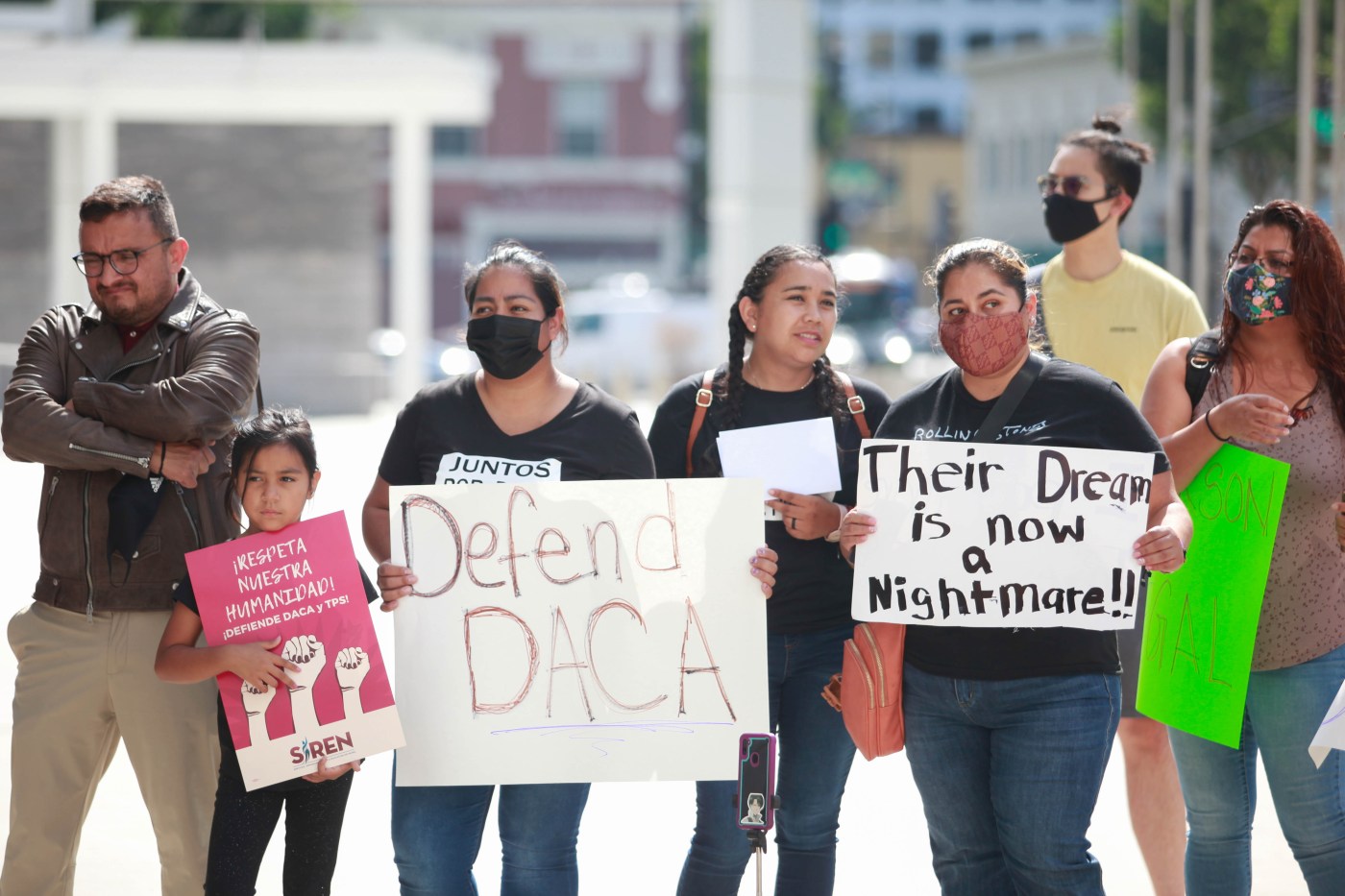Young California residents who arrived in the U.S. as children without legal permission are reeling in the wake of a new policy stripping them of health insurance coverage under the Affordable Care Act (ACA).
The policy, announced by the Centers for Medicare and Medicaid Services in June, reclassifies recipients of Deferred Action for Childhood Arrivals (DACA) — an Obama-era program that has offered hundreds of thousands of immigrants across the country temporary relief from deportation and work authorization — as not “lawfully present,” thereby disqualifying them from eligibility for ACA benefits starting August 31. It countermands a Biden-era rule that enabled many DACA recipients, also known as Dreamers, to enroll for the first time starting last November.
“The decision is deeply unfair to hard-working, tax-paying individuals in California who trusted that they would have health insurance for 2025, only to have it stripped away eight months later,” said Jessica Altman, the executive director of California’s ACA marketplace, Covered California.
According to Altman, out of over 150,000 DACA recipients currently residing in California, about 2,300 have enrolled in the ACA since they became eligible. She said it had been difficult to convince more to enroll given “broader uncertainty about whether this expansion would stand.”
“We hoped we would have had more time, a period of years to build on that outreach, to build trust and get more of the eligible DACA recipients enrolled,” she said. Now, she said, that progress had unraveled.
In the wake of the policy reversal, Covered California has launched an extensive effort to ensure that every affected DACA recipient knows about the policy. In addition, it is working with community organizations to find alternative coverage options.
“This is not something that Covered California wants to be doing,” Altman said. “This is not aligned with our values or mission, but we must comply with federal regulations.”
Mariam Arif, the communication director of SIREN, a nonprofit organization providing legal services to immigrants in Santa Clara County, said she is worried many of those affected might fall through the cracks.
“Losing access to ACA coverage would force many DACA recipients to go without essential health care or pay out-of-pocket costs they simply cannot afford, at a time when access to care has never been more critical,” she said.
“It’s really not about the cost, it is about cruelty,” she said. “[DACA recipients] contribute billions in taxes annually, including to Medicare and Social Security, which they will not be able to access. So we think it’s extremely cruel.”
According to Altman, most of the DACA recipients who enrolled in the ACA were driven by “what drives any other California enrollee.” These, she said, include workers in the gig economy, those who retire before the age of 65, and those who work part-time hourly jobs without significant benefits.
“They don’t have access to stable health benefits through their job, and they’re not eligible for Medi-Cal,” she said.
While the change only affects a fraction of California’s DACA recipients, both Altman and Arif warned that broader rollbacks could follow. Altman in particular pointed to new federal budget policies that would strip funding from several “lawful immigrant groups” as well.
“Refugees, asylees, and humanitarian parolees will no longer be eligible for financial support from the federal government starting in 2027, so that’s something we’re very closely tracking,” she said.
Arif agreed, and said that the cuts were part of a “broader agenda to dismantle federal protection, and actually target immigrant communities specifically.”
For now, Altman advises those affected by the policy to be on the lookout for calls and emails from Covered California, which might provide them with alternative pathways to affordable health care.
Related Articles
San Jose tattoo artist charged with carjacking amid legal battle with ICE
ICE says it has made tentative job offers to more than 1,000 as hiring ramps up
A Texas researcher was held at SFO airport for over a week. Now he faces deportation
Pentagon pulls back more National Guard troops and leaves behind 250 in Los Angeles
Panetta proposes bill to add protections for immigrant crime victims, witnesses
“Unfortunately, DACA recipients are used to a lot of changing policies at the federal level that impact their lives in so many ways, and this is just another example where we’re going to be sending you messages, and we’re going to be calling you,” she said. “You may have options, and we’re going to do everything we can to help you find them.”
And for now, Arif advised DACA recipients to continue to “stay strong.”
“Keep up hope, because there’s a lot of actions being taken right now, and hopefully something positive comes out of this,” she said.





